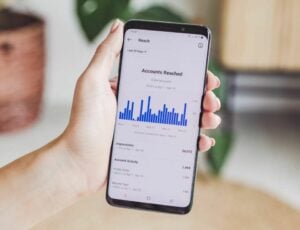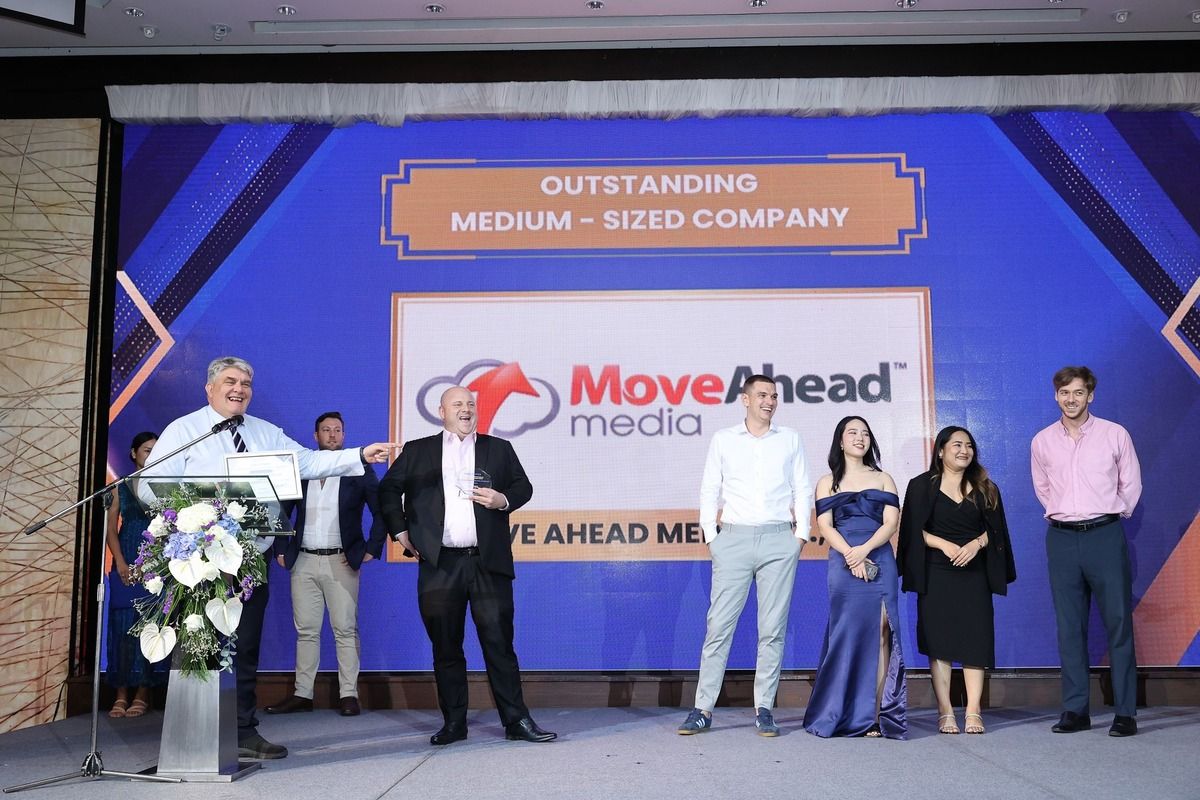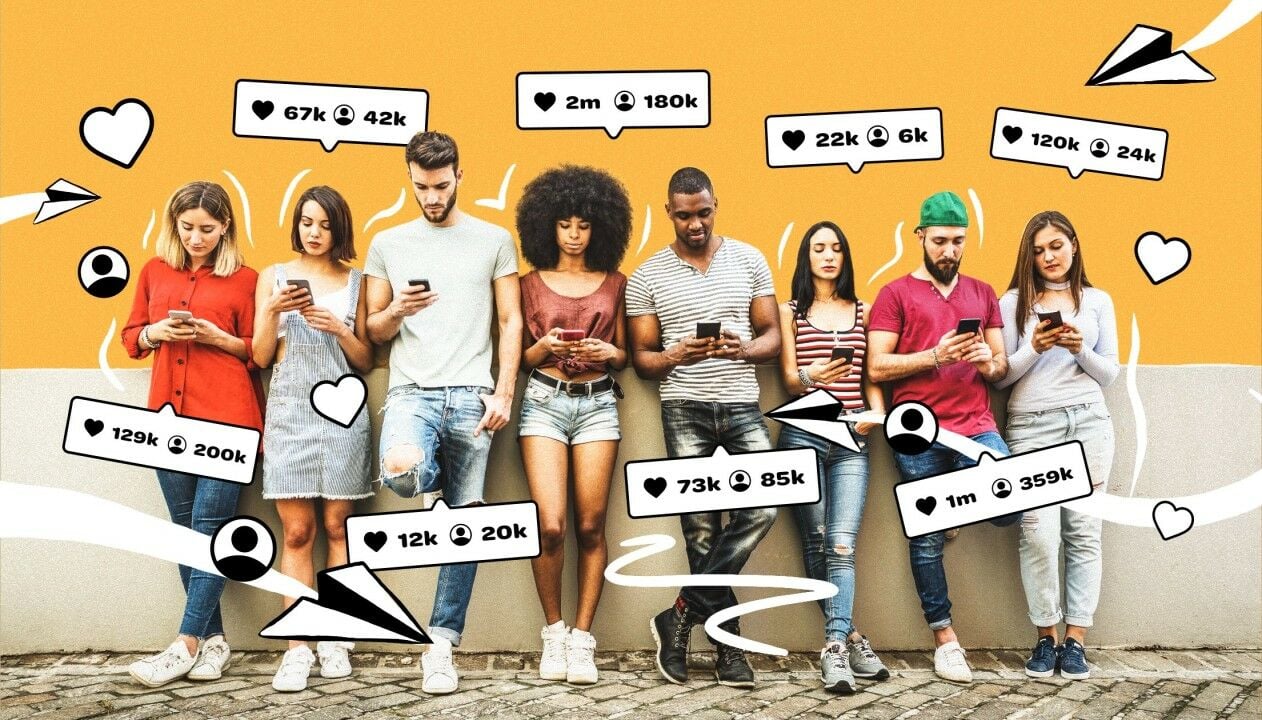Digital Marketing
Top 10 AI SEO Agencies in Thailand (2026)
Traditional SEO strategies that focused solely on rankings are no longer sufficient. In 2026, businesses need agencies that understand how to optimise for AI Overviews, Generative Engine Optimisation (GEO), and the evolving landscape where AI platforms like ChatGPT, Gemini, and Perplexity shape search behaviour. The...
Search Engine Optimisation (SEO)
Search Engine Marketing (SEM)
Social Media Marketing (SMM)
-

Move Ahead Media wins APAC Hospitality Agency of the Year 2025
Move Ahead Media has been awarded Hospitality Digital Marketing Agency of the Year 2025 – APAC by LUXlife Magazine, cementing its position as a powerhouse in data-driven marketing in the hospitality sector. The honour recognises the agency’s ability to deliver innovative strategies and real-world growth for clients across the region. As the agency has blossomed …
-

Maximise your brand’s visibility with ASEAN Now partnership
In a crowded market, standing out can be challenging. ASEAN Now presents a unique opportunity to get your brand seen by the right people. By collaborating with ASEAN Now, you’ll access an engaged community across Southeast Asia, helping your business reach its target audience and build long-lasting credibility. Reach the right audience ASEAN Now’s members, …
-

How to promote your Airbnb rental on Instagram?
Establishing a good web presence is not optional in the highly visual and ever-competitive realm of short-term rentals; it is necessary. Instagram is an unmatched tool for Airbnb hosts showing properties, drawing possible visitors, and developing a distinct brand. The platform is a special chance to bring your rental to life and interact with a …
-

How much do digital marketing jobs pay in Thailand?
Digital marketing jobs in Thailand offer a wide range of salaries depending on experience, role, and location. With the digital industry continuing to grow, understanding the pay of digital marketing in Thailand is essential for both professionals and employers to stay competitive in this evolving job market. Overview of digital marketing roles Salaries for digital …
-

10 best marketing agencies in Thailand: 2025 Edition
In recent times, the idea of digital marketing has become synonymous with building a business or a personal brand. This is no different in Thailand. In a media landscape where everything left, right, and centre is being digitised at a breakneck speed, sometimes professional guidance is just what we need. But then you face a …
-

Drive sales and impact with influencers & social users – no high costs, thanks to BoostedbyPeople.com
If your business finds it harder to stand out online, you’re not alone. Having a business in 2024 means you can’t afford not to have a strong online presence. However, many businesses are stuck in a rut, unable to find the right formula to make their efforts effective. Some fail to generate traffic at all, …
-

How TikTok is overtaking Google as a search engine
With the continuous evolution of technology, change remains an integral part of our digital lives. A notable development in this realm is the rise of TikTok as a potential contender to Google in the search engine industry. Google, a pioneer for over twenty years, has consistently refined its algorithm, establishing itself as a synonym for …
-

How to choose a domain name for your blog
Initiating a blog and selecting an optimal domain name is one of the initial and paramount tasks you’ll encounter. It is far from being merely a location for your blog, but the introductory impression, the emblem, and the entity. This task might seem overwhelming, but rest assured, we’re here to assist you. This write-up will …
-

Top 5 secrets for online sales success
In the expansive digital landscape, effective product marketing necessitates both artistic flair and scientific precision. As a business proprietor, you may be seeking the keys to mastering such an endeavour. Regardless of whether your products are digital or physical, adopting certain strategic approaches can significantly enhance your business success. A multitude of tactics, ranging from …
-

How to set up a Linktree
Are you encountering the constraints imposed by Instagram’s single-link policy? This issue is prevalent and the platform’s pivotal role in audience engagement is undeniable. However, this inherent restriction of possessing only one accessible link in the bio may serve as an obstacle when attempting to direct your followers to diverse locations. This is where Linktree, …
-

What is lead generation and how to do it
Ever been left scratching your head over the term lead generation? Don’t worry, you’re not alone. This fancy business lingo pops up a lot and if it’s got you feeling like you missed a memo, no sweat. So, what’s a lead? Well, in simple terms, it could be anyone or even an entire company that’s …
-

How to grow your social media handles organically
In the pursuit of success on social media, organic growth may seem like a far-off aspiration. However, it is by no means an unachievable objective. Through appropriate strategies, one can foster a robust and interactive following without straining financial resources. It’s imperative to understand that immediate results are not always the measure of success. Genuine, …
-

How to get started with a YouTube channel as beginner
Setting up your channel is way easier than you might think, with a treasure trove of resources just waiting to help you sail smoothly through the setup process. But here’s where the real fun begins: creating content that strikes a chord. It’s all about jumping in with both feet, making those first videos, and learning …
-

How long should your blog articles be for top SEO
Navigating the world of content creation, you’ve likely pondered over the optimal length for your blog articles. It’s a common query, especially when the goal is to enhance your SEO and captivate your audience. The truth is, there isn’t a one-size-fits-all answer, but understanding the nuances can significantly impact your blog’s performance. For starters, the …
-

Upcoming social media platforms 2024
As professionals navigate the continuously evolving terrain of social media, it is imperative to remain at the forefront of innovation. With the onset of 2024, it becomes crucial to identify new platforms likely to gain significant market traction. This necessity extends across digital marketing experts, content strategy architects, and avid social media practitioners, as a …
-

The marketing sweet spot – General appeal or niche focus
Identifying the optimal target audience for your digital enterprise presents a significant challenge. It may seem advantageous to aim broadly, seeking to attract a universal clientele. Yet, this strategy often results in underperformance, due to the formidable competition posed by well-established entities. Conversely, targeting an overly specific demographic can severely constrain potential sales. Achieving an …
-

Leveraging AI and machine learning can revolutionise your campaigns
The current landscape of digital technology is marked by the struggle to achieve visibility for your business online and target the appropriate audience amidst a wave of competition. Search engine marketing (SEM) has pivotal strategies that will allow a business to achieve this but with ongoing advancements in artificial intelligence (AI) and machine learning, more …
-

Hidden social gems for skyrocketing your marketing strategy
In the vast expanse of the digital world, there’s more to social media than just the giants like Facebook, Instagram, and Twitter. Hidden gems await your discovery, offering unique experiences and opportunities to connect in ways you might not have imagined. From platforms that predict the future to those that reward you for engaging with …
-

Google’s 2024 update: Wave goodbye to spam & welcome quality
Google’s latest initiative to enhance search result quality has kicked off with the launch of the March 2024 core update. This significant update, alongside a series of spam updates, marks a pivotal moment for both users and content creators. With a focus on refining its core ranking system, Google has also seamlessly integrated its helpful …
-

The roadmap to a digital future in 2024
Thailand is on the brink of a digital revolution, set to redefine its economic landscape by 2024. With the government’s Thailand 4.0 policies fuelling this transformation, the nation is embracing a future where digital technology drives growth and innovation. It’s a strategic move to enhance operational efficiency and competitive advantage across industries, signalling a major …
-

Maximising engagement: The impact of cookies on social media strategies
In today’s digital landscape, the way brands connect with you online is evolving rapidly, especially in social media marketing. At the heart of this transformation are social media trackers, a unique breed of cookies that play a pivotal role in how your online activities are monitored and how personalised content is served to you. Understanding …
-

Cookies are more important for websites than you think
Navigating the digital landscape can be a minefield, especially when it comes to understanding the nuances of website cookies. You might have heard the term tossed around but are still left wondering, “Do I actually need cookies on my website?” Well, you’re not alone in this quest for clarity. The short answer is, it depends …
-

Accept or reject cookies? How to safeguard your online privacy
Navigating the digital world often means making decisions about your online privacy, and one common crossroad involves website cookies. You’ve likely encountered those pop-up messages asking if you accept cookies, but have you ever paused to consider what the best choice is? Accepting or rejecting cookies isn’t just a matter of clicking ‘yes’ or ‘no’; …
-

Discover what website cookies are: Security risk or safe?
Have you ever wondered why websites seem to remember you? That’s all thanks to website cookies, those tiny text files that make your online experience smoother and more personalised. Stored on your device while you browse, these cookies carry a unique ID to recognise your browser or device, ensuring a seamless interaction with the web. …
-

The secret to cross-channel SEM campaigns revealed
In today’s digital landscape, mastering cross-channel SEM campaigns is more than a strategy; it’s a necessity. With your audience hopping from one device to another, ensuring your brand’s presence across multiple platforms can significantly amplify your visibility. It’s all about reaching your potential customers where they are, seamlessly integrating your marketing efforts for maximum impact. …
-

Best times to apply Ads for stunning results
Deciding when to apply ads can transform your marketing strategy, turning visual assets into powerful tools for engagement. Whether you’re armed with graphics or videos, it’s crucial to know the perfect moment to launch your display ads. This not only maximizes visibility but also ensures your message reaches the right audience at the right time. …
-

Topical authority: The key to unlocking SEO success
In the world of digital marketing, standing out is key, and that’s where topical authority comes into play. It’s the secret sauce that can set your brand apart, making you the go-to source in your niche. But what exactly is topical authority, and why should you care? Why does topical authority matter to SEO? Topical …
-

How Ad blockers work: Enhancing your online experience
Ever felt overwhelmed by the constant barrage of ads while browsing online? You’re not alone. Ad blockers offer a breath of fresh air, allowing you to navigate the web without the clutter of incessant advertisements. By installing a simple extension on your browser, you can transform your online experience from frustrating to seamless. Ad blockers …
-

Boost your site’s rank: The must know EEAT SEO secrets
Understanding EEAT and its impact on SEO is essential for anyone looking to improve their digital marketing game. It’s not just about keywords and backlinks anymore; it’s about showing that you’re a credible source of information. Leveraging EEAT can significantly enhance your SEO performance, making your site more appealing to both users and search engines. …
-

Boost your sales with sustainable digital marketing now
Connecting with customers online is not just an option; it’s a necessity. But as you dive into the world of digital marketing, there’s a growing trend that can’t be ignored: sustainable digital marketing. It’s all about leveraging digital platforms to promote your brand’s commitment to sustainability, ensuring your marketing efforts don’t just drive sales but …









































































